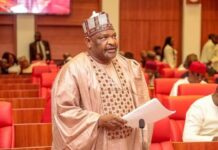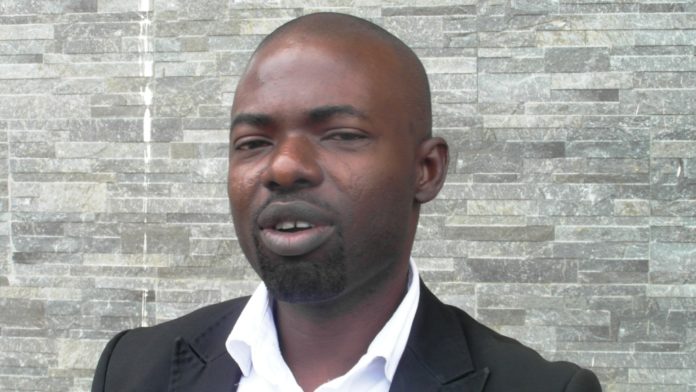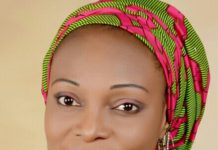by Ndidichukwu Odoh
Beyond discrimination and poor access to treatment, Network of People Living with HIV/AIDS (NEPWAN) in Nigeria says their women wear the face of the HIV burden more than men and this is the reason why Nigeria has the highest gap in PMTCT in the world. Read our revealing Interview with Mr. Victor Omoshehin NEPWAN Coordinator.
How has care for your members been presently in Nigeria?
My organization is responsible for coordinating the affairs of 3.5 million Nigerians living with HIV. We currently have about 130 support groups across the nation. We have state chapters across the federation. The issue of HIV epidemic in the country for 2017 it was a tough year for us, very challenging we learned a lot about the present government and about the national epidemic. You know that throughout 2017 NACA as an agency did not have any support from international organization to run HIV response in the country. They are counting more on the allocations from Federal Government. Through 2016 and 2017 we had a feel of the recession as well, that hindered a lot of activity, budgetary allocation, and release of funds to not only NACA and also the Ministry of health. State Agencies for the control of HIV/AIDS are also affected by this funding challenge. This generally affects the HIV control and response at the state level. The resilient spirit of our members is encouraging, we are a very strong people, it is our hope that the government will be more responsive and listen more to the plight of the people. We hope that people who need to access health care will not be turned back because they don’t have money to pay especially people living with HIV. We hope that people who want to know their HIV status for the first time will not be denied access because they don’t have money. Some people don’t have N1,000 to pay for HIV test, we want it to remain free that is one of the major epidemic control strategy that we can use to fill in the gap to ensure that we have the remaining two million Nigerians on treatment. For us to have one million Nigerians in Anti retroviral therapy in 2017 is a huge success, we need to celebrate this. We can work towards bringing in the remaining two million people. In 2017 there was a new scientific discovery in the United States that people who are on their Anti retroviral Therapy with viral suppression cannot transmit the virus to anybody. Undetectable viral load means that they cannot infect anybody, for us we feel that viral load screening is very important to monitor the process of treatment for us to be able to determine that people already gotten to that stage that the virus will not be dictated, there must be viral load screening. The viral load screening needs to be accessible, and affordable at all facilities.
Has access to HIV treatment services improved?
Nigerians including pregnant women must have access to HIV treatment and testing without barriers. Every woman need to know their status each time that they are pregnant and they need to access antenatal services. We hope that in 2018 every partner including the Nigerian government and people living with HIV are going to be more responsive to ensure that access to services is not a challenge as well as access to quality health care for people to continue to stay alive. As Network of people living with HIV we are not happy that for the past 15 years we are seated at the global ranking as the second most burdened country in the world. We are not happy about this, we want to work with partners and everybody to ensure that we bring the epidemic and the prevalence rate down.
With regards to women who test positive to HIV, how do you carry them along and ensure those in their reproductive age as well as the pregnant know about PMTCT?
NEPWAN is for everybody, be it women living with HIV, sex workers, teenage girls, drug users, we don’t care whatever you do, but we care if you are a Nigerian and a human living with HIV. We need to fight for your right to have access to services holistically, we care for women. As NEPWAN we know that women have peculiar challenges that need to be addressed. We have an association of women living with HIV/AIDS as an umbrella, Network for Women Living with HIV to champion the cause of PMTCT, and gender. The basic need of women living with HIV at the grassroots cannot be overemphasized. There are peculiar issues that need to be addressed that are beyond HIV. If a woman is HIV positive it means that the burden the woman is carrying is much because that woman is still responsible for the burden of the family. Imagine a positive woman who would have to nurse a baby, has a husband who is also HIV positive, her still need to continue to be the mother of the house. She needs to care and nurse the baby and do anything possible to ensure that the baby is not infected. She also protects and cares for her husband as well. For the fact that she is a woman and HIV positive, her responsibility as a woman to keep the home is not reduced in anyway. It doubles her role and task in the family. It is the woman that wears the face of the burden more than the men. Most times the men do not want to talk about their status, so the woman would need to remain in silence, she manages the epidemic burden and economic issues.
What is your expectation for the Nigerian Government to address the needs of pregnant women living with HIV?
One thing our government has failed to realize is the fact that people living with HIV need more that Anti retroviral Therapy. We need more than the pills to survive, there are pills that are for nutritional value, and people need to know what food they need to eat to have a balanced diet and be able to live healthy to face the challenge that may come as a result of change in the system.
The women also need psychological counseling, many times women fall into depression. Psychologically we don’t have that service. When you go for HIV treatment you just take your pill and leave that is what is available across all the federation. In Nigeria there is no health facility that is giving us a comprehensive service, where you can receive sexual reproductive, mental health services. Nigerian women living with HIV need services around their sexual reproductive health, they need to have access to family planning, and it should be available, accessible and affordable. We need to prioritize this need for women living with HIV especially pregnant women.
What are the reproductive health concerns your network want government to pay attention to?
For a mother or lady who is in her reproductive age, there are so many things you want to talk about, there are so many things we want to see addressed in the health sector, beyond just getting the pill and going out. Every woman living with HIV would need to monitor their viral load and CD4 count, know when it is safe to get pregnant for her and the new baby. Most of these women have discordant relationships, some have spouses who are negative. They need to be able to monitor the fact that they have a negative husband and would want to start making babies. All these are what the system needs to look into especially the Federal Ministry of Health and NACA. We should not just be talking about data, figures and number of people who are taking drugs. Our lives depend more on care than the pills, depression is a very big disaster.
Nigerian data seem not to be speaking to what the challenge and burden is yet, does this also affect budget?
Data is a problem collectively with the support of international donors the minister of health was able to mobilize resources over $100,000,000 have been invested. We as a country have started the process since last year. We are doing a national appraisal to find out what is the real situation. We want to know what the prevalence rate is in Nigeria and total population estimate of people living with HIV, women living with HIV and sex workers living with HIV. This analysis is going to be conducted and the process has started. With the available fund we are going to get result. When that is done we can say that our data are accurate and the communities are going to be part of the process even at the local government level. It is a collective process all the partners are involved and it is happening across all the states in Nigeria. If this is done it will help us in planning and budgeting. The national policy says test and start so we need to get our numbers right to be able to treat anyone who tests positive to HIV. We have 50% of our women giving birth at Traditional birth attendants’ place, at home without the help of skilled birth attendants. We have a very huge gap in this area. Until those women at the community level embrace the services provided at health facilities where they can enroll for antenatal services and get HIV test we cannot be able to bridge the gap in treatment, and control of Mother to child transmission of HIV. Nigeria has the highest gap in PMTCT in the world, the only way to bridge it is to have more pregnant women going to hospitals for antenatal, an access to testing and treatment. We need to build the public confidence on health care services at grassroots level and for those that live in communities where health care centers are available and functional.



























